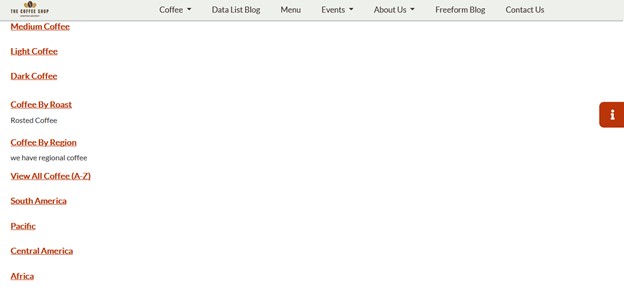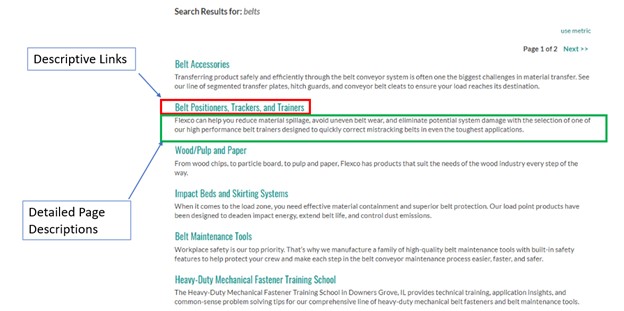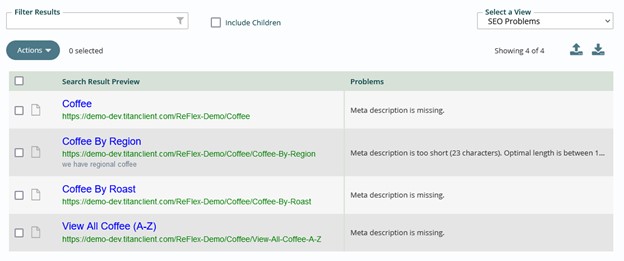By JJ Best and Rick Fessenbecker
May 24, 2021
4 Minute Read
We recently met with a firm plagued by poor internal search results on the company’s long-established intranet. Frustrated users simply could not find what they sought via the site’s search query box. The company wanted it fixed and asked for our advice.
In a way, the problem stemmed from the intranet’s long history of success. As websites grow over time, they house more and more webpages and documents. Web managers must store and index all of them to provide useful and reliable search results. The tasks become ever more daunting as their sites grow. As organizations generate mountains of digital content, fast, effective search becomes more important as it becomes more difficult to bring about.
The Google Factor
Web managers face these challenges in an atmosphere of high user expectation: Hey, Google can do it for the whole web; why can’t we do it for our gated-off intranet?
This "Google factor" sets a high bar for internal search for both your internet and intranet. Users presume that great search results are easy to attain and all but automatic. That isn't the case.
As we looked into our client’s problems, we found that the company’s intranet search engine was indexing available content properly and serving appropriate pages to searchers. That’s necessary, but not sufficient. The search engine delivered generic page links with minimal page descriptions or no descriptions at all; users need more than that.
The firm's on-site search engine properly indexed the text found on its webpages, but also relied on such metadata as:
- Title Tags - The text that provides titles and links to the search engine;
- Page Descriptions - The text that provides a high-level overview of the page being served; and
- Alt Text - Text that describes images and pictures, because search engines cannot read native images.
Much of this was missing. Poor content curation leads to generic page links and insufficient page descriptions. Here’s an example of a set of unhelpful search results:

Compare that with the search results from a webpage properly curated with descriptive page links and useful page descriptions:

Once we showed our client the difference, they realized that the first step to solving their search problem was to address the metadata. The client put the project in the hands of one our experienced content managers, who completed the update in a few hours’ work per week over six weeks.
Our expert’s first step was a quick analysis of the website page content. Many content management systems support easy access to a report that lists links, page descriptions and missing metadata. Compare the coffee search results above with the example report below, as displayed on a Titan CMS workstation (Titan CMS is an enterprise content management system powered by Northwoods):

Once you've identified the missing titles and page descriptions, you can update the pages over time and let the on-site search engine do its thing, which is index the site. More advanced content management systems allow you to download the pages and their content to a spreadsheet, which expedites the updating of the metadata. When the updates are complete, simply upload the spreadsheet to the content management system and all pages update at once.
After we performed this exercise for this client, search results improved and user satisfaction rose. Users could now scan and determine the value of a link before clicking on it. With our immediate mission complete, we turned the site over to the client’s content managers, who are in a much better position to manage and curate metadata going forward.
Curate Content Before Investing in AI/Cognitive Search
Success hinged on the client’s recognition of the need for a little investment in content curation. Content curation can seem like a daunting task, one that might be avoided through new AI or cognitive based tools, which promise to deliver highly relevant search results automatically. These tools have their place, but we recommend first carrying out the content exercise described above. It deepens your understanding of your content before you invest in expensive AI/cognitive search technology. Preliminary content curation will help you get the most out of that technology and will have immediate positive impact on its own.
Your content management system can make a big difference in the quality of your on-site search results and management. Titan CMS, for example, offers native Smart Search capability that provides enhanced control over search results. Our Titan CMS team would be happy to show it to you! Request a demo.
By JJ Best and Rick Fessenbecker
Related Blog Posts

Many accessibility tools and products on the market “bolt on” to your website as third-party scripts or plugins. They claim to make websites more accessible to end users and/or protect site owners from accessibility lawsuits. Sounds like a great, easy solution, right? Here's what you need to know.

The XML sitemap is one of the many tools in the SEO toolbox. But what exactly is a sitemap? What does Google do with it? And what should you include in it?

One of Northwoods' B2B clients was regularly ranking on the first page of SERPs for several target keywords but averaged bottom-of-the-page rankings. Find out how our team helped them achieve top-of-page results and how you can use our strategies to improve your own rankings.